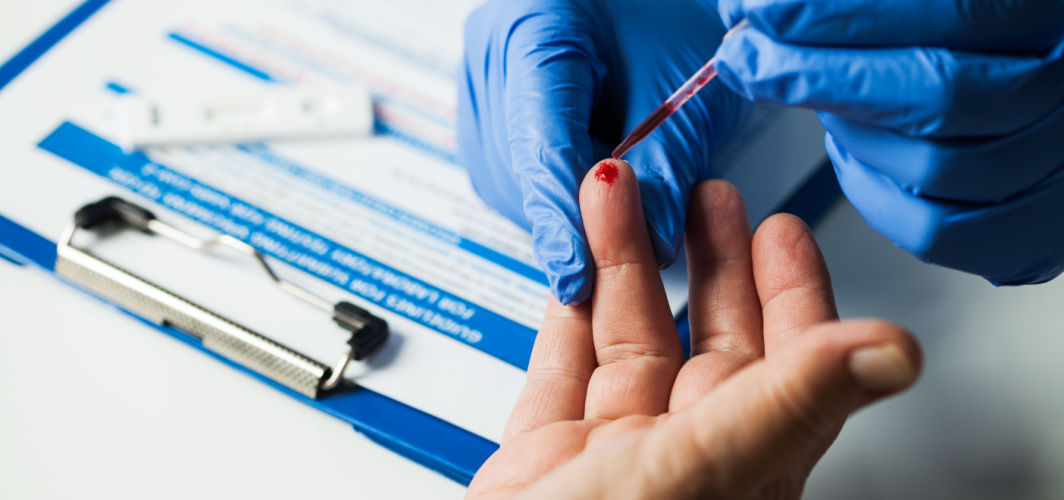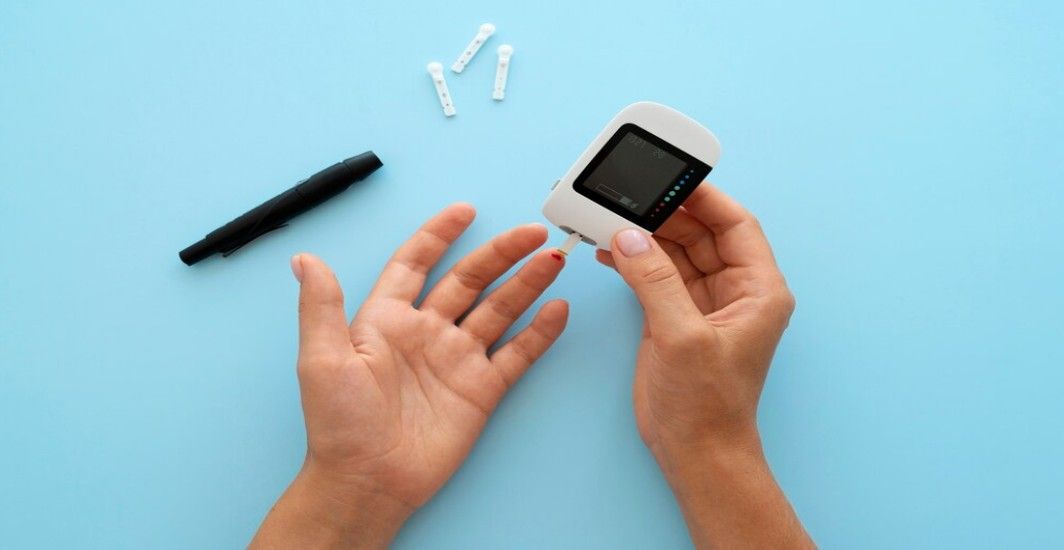Diabetes Management
What Should Be My Lifestyle Goals If I Have Diabetes?
2 min read
By Apollo 24|7, Published on - 29 July 2024
Share this article
0
0 like

Living with diabetes doesn't mean you have to compromise on a fulfilling lifestyle. Rather, it's about adapting to changes that can enhance your quality of life whilst managing your blood sugar levels effectively. Let's delve into the key lifestyle goals if you have diabetes and how you can achieve them.
Foster Healthy Eating Habits
A balanced diet is a cornerstone of diabetes management. Including more fruits, vegetables, whole grains, lean proteins, and healthy fats can help maintain stable blood sugar levels. Try to limit processed foods, sugary snacks, and refined carbohydrates which can cause sugar spikes. Foods with a low glycaemic index are beneficial as they provide sustained energy and help regulate blood sugar levels. A registered dietitian can help create a personalised meal plan that suits your preferences and lifestyle.
Embrace Regular Physical Activity
Modern living often encourages sedentary behaviour, but regular physical activity is crucial for diabetes management. Strive for at least 30 minutes of exercise most days. Choose an activity you enjoy, be it walking, swimming, cycling, or strength training, as this will motivate you to stick with it. Regular exercise helps lower blood sugar levels and reduces the risk of complications related to diabetes.
Strive to Maintain a Healthy Weight
Excess weight can exacerbate diabetes symptoms. Even a modest weight loss can significantly improve your health. Aim for gradual weight loss through balanced eating and regular exercise. Set realistic goals that you can sustain in the long run. A doctor or dietitian can provide guidance on reaching and maintaining a healthy weight.
Keep Tabs on Your Blood Sugar Levels
Monitoring blood sugar levels is an essential part of diabetes management. Regular checks will give you insights into how different factors like diet, exercise, and medication affect your blood sugar levels. This knowledge will empower you to make informed decisions about managing your diabetes effectively.
Incorporate Stress Management Techniques
Stress can negatively impact blood sugar levels. Adopt stress management techniques like meditation, deep breathing exercises, yoga, or spending time in nature to support your mental and emotional health whilst managing diabetes.
Achieving these lifestyle goals can help you manage diabetes effectively and improve your overall health. Remember, no one-size-fits-all approach exists in diabetes management, it's all about what works best for you. Consider enrolling in the Apollo Super 6 programme as it offers personalised support to help you reach these goals and achieve better control over your diabetes.
Diabetes Management
Consult Top Diabetologists
View AllLeave Comment
Recommended for you

Diabetes Management
Can Diabetes Pass On To Generations?
Not only family history, there are other factors that can increase the risk of diabetes. These factors include being 45 years or older, a sedentary lifestyle, being obese or overweight, high blood pressure, high cholesterol levels, gestational diabetes, PCOS, stress and depression, and a history of heart disease. Individuals with two or more risk factors have a higher likelihood of developing diabetes compared to others.

Diabetes Management
Identifying Prediabetes Risk Factors
Prediabetes is a wake-up call that signals an adjustment in your lifestyle choices. Understanding the risk factors such as being overweight, ageing, having a family history of type 2 diabetes, and certain ethnic predispositions can help you take proactive measures. With regular physical activity, a balanced diet, and regular check-ups, you can keep prediabetes at bay and lead a healthier life.

Diabetes Management
How Does Artificial Intelligence Contribute To Diabetes Care?
Artificial intelligence is revolutionising diabetes care, from predicting risks and controlling glucose levels to personalising treatment plans. While challenges exist, collective efforts can help harness the full potential of AI. To support this, initiatives like the Apollo Super 6 programme provide holistic guidance for diabetes management, aligning with the personalised approach of AI in healthcare.
Subscribe
Sign up for our free Health Library Daily Newsletter
Get doctor-approved health tips, news, and more.
Visual Stories

8 Fruits That are Incredibly Healthy for Diabetes
Tap to continue exploring
Recommended for you

Diabetes Management
Can Diabetes Pass On To Generations?
Not only family history, there are other factors that can increase the risk of diabetes. These factors include being 45 years or older, a sedentary lifestyle, being obese or overweight, high blood pressure, high cholesterol levels, gestational diabetes, PCOS, stress and depression, and a history of heart disease. Individuals with two or more risk factors have a higher likelihood of developing diabetes compared to others.

Diabetes Management
Identifying Prediabetes Risk Factors
Prediabetes is a wake-up call that signals an adjustment in your lifestyle choices. Understanding the risk factors such as being overweight, ageing, having a family history of type 2 diabetes, and certain ethnic predispositions can help you take proactive measures. With regular physical activity, a balanced diet, and regular check-ups, you can keep prediabetes at bay and lead a healthier life.

Diabetes Management
How Does Artificial Intelligence Contribute To Diabetes Care?
Artificial intelligence is revolutionising diabetes care, from predicting risks and controlling glucose levels to personalising treatment plans. While challenges exist, collective efforts can help harness the full potential of AI. To support this, initiatives like the Apollo Super 6 programme provide holistic guidance for diabetes management, aligning with the personalised approach of AI in healthcare.


